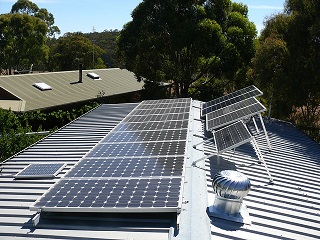Although solar panels are designed to effectively heat water, it does not work well when it is overheated. Researchers and engineers have thus discovered a way to solve the problem at hand.
When solar panels are placed outside on rooftops, which they generally are with the purpose to heat water, they are prone to get overheated due to having to be exposed to the sun to perform the task at hand. Since that cannot be changed, researchers have come up with a way to make the solar panels sweat, which allows them to cool down, as well as an increase in power output. This is a simple, yet effective way to provide solar cell panels with an instant boost that gets the job done successfully.
Currently, in 2020, more than 600 gigawatts of solar power exist globally. This provides up to 3% of the world’s electricity demand and is considered a far more sustainable alternative than traditional electricity. Within the next decade, this 3% is expected to steadily increase to 15%, with most solar panels being designed to use silicon that converts sunlight into electricity.
Water Plays an Essential Role in the Future of Solar Water Heating
Using silicon to convert energy from sunlight to electricity, silicon cells still only convert up to 20% of energy captured from the sun, while turning the remaining into heat that warms up panels by up to 40 degrees. Even though this is the case, researchers discovered that every degree above 25 degrees causes the solar panel’s efficiency to decrease.
Now, knowledge and technology are cooling water panels to increase its efficiency even more. Without the usage of water, pipes, and storage tanks, researchers have furthered the engineering of infrastructure and managed to create an atmospheric water collector system that allows water panels to suck water vapor from the air to naturally cool down solar panels that reach temperatures above 25 degrees. This allows for a more sustainable option to advance solar technology and make the process of environmentally friendly water heating more effective.






